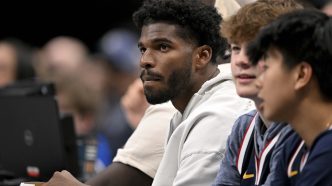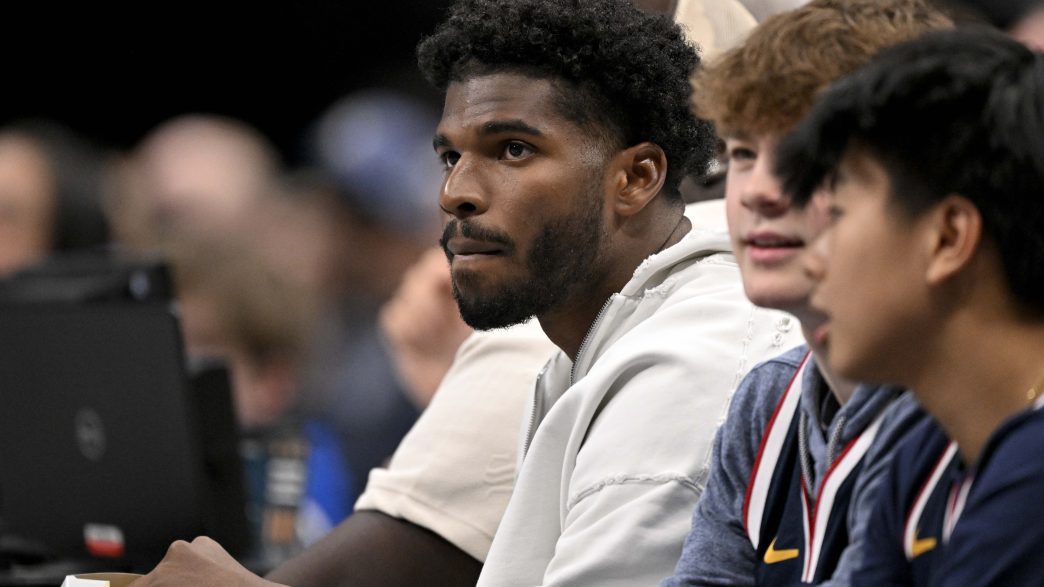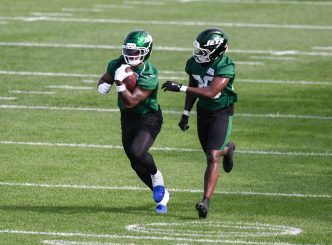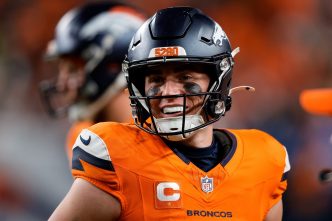The NFL Draft is always filled with anticipation and surprises, and the 2025 edition was no exception. Fans are often on the edge of their seats as they watch their favorite teams make selections, but it’s the unexpected twists—players sliding down the board or other surprising picks—that make the event truly thrilling.
One slide that will surely echo through the 2025 draft history is that of Colorado quarterback Shedeur Sanders. Once projected as a top-5 pick leading up to the big day, Sanders surprisingly found himself waiting until the fifth round, when the Cleveland Browns selected him with the 144th overall pick.
As fans and analysts dissect why this happened, several theories have emerged, leading to heated discussions throughout football circles. After taking a closer look at the circumstances surrounding his draft, one key factor seems to stand out.
In the months leading up to the draft, Sanders faced significant scrutiny, not only from fans and the media but also from NFL evaluators. Various reports painted an unflattering portrait of his pre-draft preparation, suggesting that he struggled in interviews—one NFL assistant coach notably described one encounter as “the worst formal interview I’ve ever been in in my life.”
Despite these criticisms, many still anticipated Sanders would hear his name called by the end of the second round. So, what exactly triggered his unprecedented drop?
Brett Kollmann of Underdog offered a compelling perspective that resonates with this situation. One critical misstep stands out: Sanders opted against hiring an agent. An agent plays an essential role in guiding prospects through the complex NFL Draft landscape, providing insights and realistic expectations about where they might land.
Without that guidance, it seems Sanders wasn’t fully aware of how teams viewed him as a prospect. An NFC scouting director echoed this sentiment, indicating that Sanders may have been “insulated” throughout his career, surrounded mostly by close associates—his father, Deion, and others in his circle—who perhaps didn’t provide the brutally honest evaluations he needed.
The film and statistics show that Sanders didn’t display any standout traits that could have justified a top-10 selection. His tendency to hold onto the ball longer than necessary, often resulting in sacks, raised red flags for many teams. When you combine these performance indicators with reports of off-putting demeanor during interviews, it’s easier to see why his draft stock tumbled.
Ultimately, Sanders needed someone to offer a candid assessment of his standing in the eyes of NFL teams—a conversation that never materialized. Instead, he carried the confidence of a top-5 pick into the pre-draft process, which may have contributed to his unexpected fall.
In hindsight, hiring an agent could have helped frame his narrative and better prepare him for the challenges of the draft. It’s a lesson as old as the draft itself: knowing your value and having the right team in your corner can make all the difference on one of the most important days of a player’s career.








